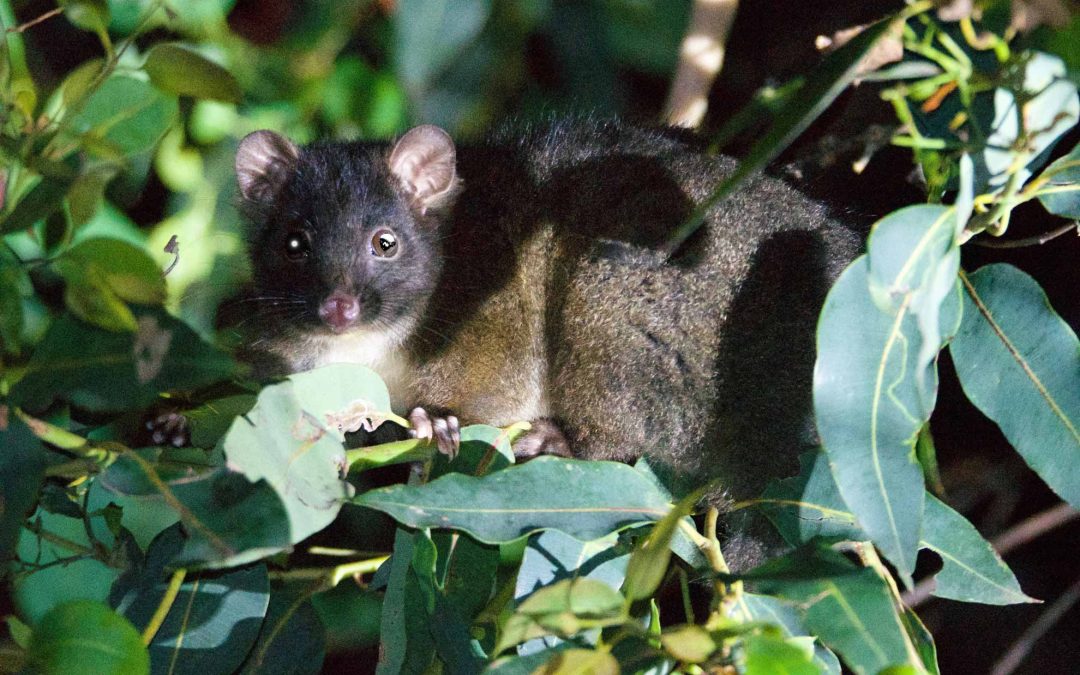If you helped collect dead possums for Nature Conservation Margaret River Region last year, the results are now in from some ground-breaking research done by the University of WA using the animals’ tissue samples.
Nature Conservation and residents collected dozens of deceased Western Ringtail possums which were used in a Masters project at the university to investigate the impact of climate change and to see if local populations of the critically endangered possums are adapting.
UWA Masters student Grace Marsh said the samples had proven invaluable for filling gaps in existing genetic data. She did tissue sample and DNA analysis, which allowed her to study local adaptation to climate and predict how vulnerable ringtails are to climate change.
Ms Marsh’s conclusions were that:
- the species is at high risk under a business-as-usual scenario, particularly in and around Bunbury
- from the Margaret River region through to Walpole-Denmark is the least vulnerable, which makes it particularly important as a future refuge for ringtails
- conservation in the Margaret River region is a priority because local populations here may be strongholds while populations decline elsewhere
“I was genuinely surprised and amazed at the engagement and passion of the Margaret River community towards Western Ringtail conservation,” Ms Marsh said. “I was expecting to get 10 samples, if I was lucky, but received dozens. I feel so lucky to have been helped by such a uniquely caring community.”
Nature Conservation’s Lauren Scanlon said the research “clearly shows that the Margaret River region will continue to be an important refuge for Western Ringtail possums into the future”. “It also highlights just how important it is for those of us who live in the region that every action counts,” she says. “Each of us can work in our backyards and the wider environment to protect, improve and enhance habitat in our region, preserving endangered species and protecting biodiversity.”
It comes amid a particularly hot and dry summer, with local wildlife carers and vets being inundated with Western Ringtail possums severely injured with burnt paws, dehydration and heat stress. “Wildlife carers tell us they are overwhelmed with the sheer number of possums coming in to care during these relentless heatwaves,” said Ms Scanlon. “Worryingly, it may be giving us a glimpse into what future summers will look like, which is why it is imperative that each of us work to provide habitat, water, shade and shelter for our wildlife. Research shows us that even our urban areas in the South-West will become important refuges in a drying climate, which is why what we do in our backyards really counts.”
To help our possums, Nature Conservation recommends planting native trees, shrubs and ground covers; providing water both on the ground and in trees such as hanging in a basket, installing nesting boxes in cooler parts of the garden, and keeping dogs and cats contained inside at night to minimise stress on possums.
Western Ringtail possums are critically endangered and estimates put the remaining population size in the wild at less than 8,000 mature individuals, with a decreasing trend. Some recent research predicts there is a very high chance they could be extinct within 20 years if action to protect populations and their habitat isn’t enacted immediately.
Ms Scanlon said ringtails are smaller than the more common Brushtail possum and can be identified by the long thin tail with a white tip. They often use fence lines and trees to travel from their drey or nest to a favourite feeding spot, but can fall victim to dogs, foxes and feral cats and are also frequently run over by cars when forced to cross roads after dark.
If you find sick, heat-stressed or injured possums this summer, please contact the Wildcare helpline 9474 9055.

